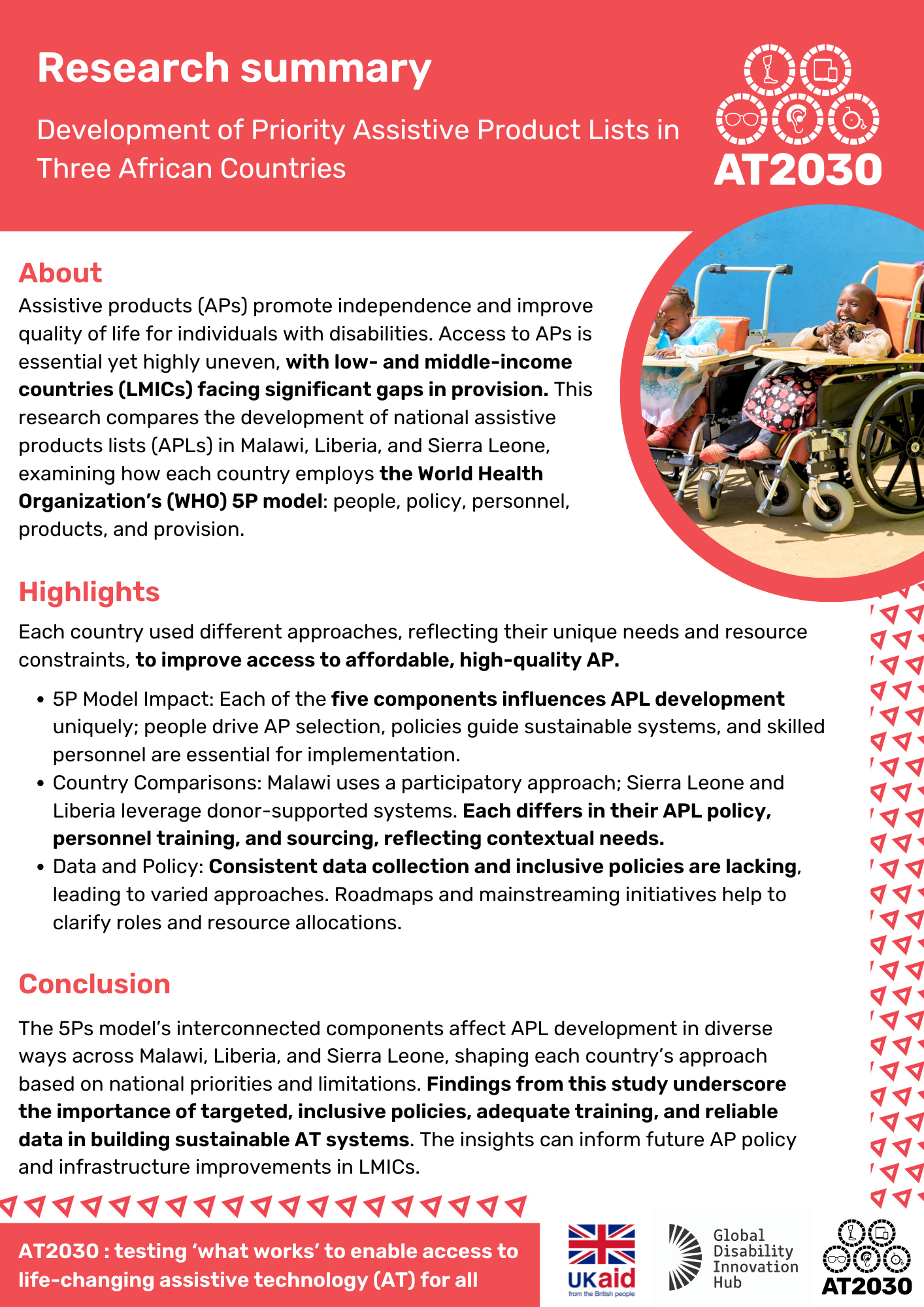Development of Priority Assistive Product Lists in Three African Countries: Research Summary
About
Assistive products (APs) promote independence and improve the quality of life for individuals with disabilities. Access to APs is essential yet highly uneven, with low- and middle-income countries (LMICs) facing significant gaps in provision. This research compares the development of national assistive products lists (APLs) in Malawi, Liberia, and Sierra Leone, examining how each country employs the World Health Organization’s (WHO) 5P model: people, policy, personnel, products, and provision.
Highlights
Each country used different approaches, reflecting their unique needs and resource constraints, to improve access to affordable, high-quality AP.
- 5P Model Impact: Each of the five components influences APL development uniquely; people drive AP selection, policies guide sustainable systems, and skilled personnel are essential for implementation.
- Country Comparisons: Malawi uses a participatory approach; Sierra Leone and Liberia leverage donor-supported systems. Each differs in their APL policy, personnel training, and sourcing, reflecting contextual needs.
- Data and Policy: Consistent data collection and inclusive policies are lacking, leading to varied approaches. Roadmaps and mainstreaming initiatives help to clarify roles and resource allocations.
Conclusion
The 5Ps model’s interconnected components affect APL development in diverse ways across Malawi, Liberia, and Sierra Leone, shaping each country’s approach based on national priorities and limitations. Findings from this study underscore the importance of targeted, inclusive policies, adequate training, and reliable data in building sustainable AT systems. The insights can inform future AP policy and infrastructure improvements in LMICs.
